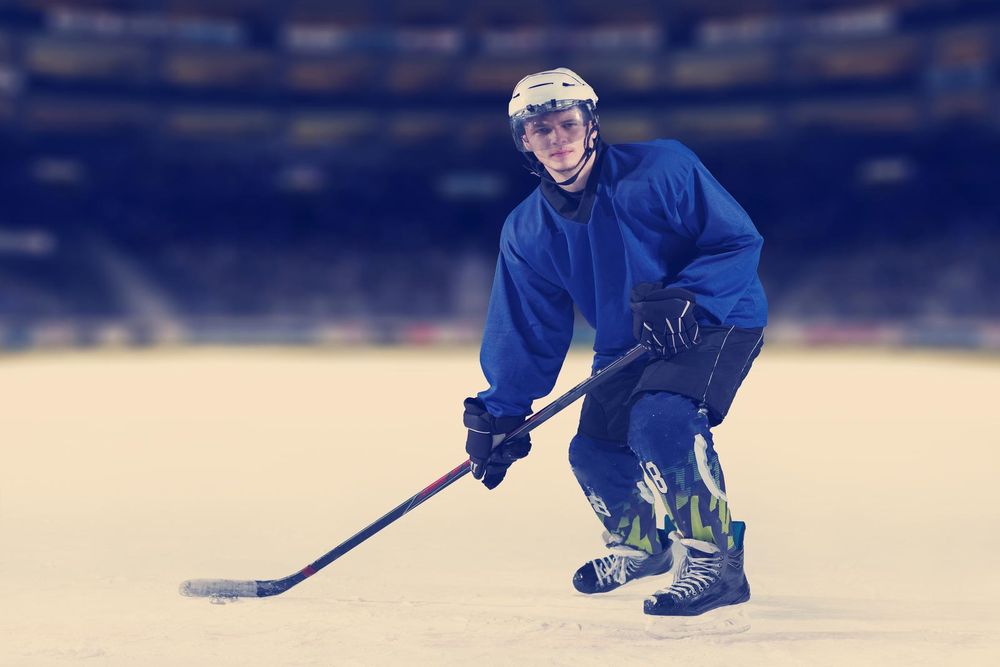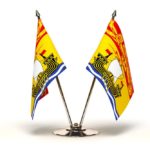Today, we will address a question that many parents have: What age can your child start playing hockey? We understand that introducing a child to a new sport can be both thrilling and overwhelming. That’s why we’ve gathered valuable information to guide you through this process and ensure your child’s seamless transition into the world of hockey.
Generally, organized hockey begins around the age of five, although some children start learning to skate a few years earlier. Hockey teams are formed based on age groups, allowing players within a year of each other to play together.
Joining a hockey team at a young age not only introduces children to the sport, but also fosters skill development and prepares them for future years in the game.
Stay tuned as we explore the world of hockey and answer frequently asked questions. Let’s embark on this exciting journey together!
Age to Start Organized Hockey
Children can begin participating in organized hockey at the age of five. Starting hockey at a young age offers several benefits for children. It helps develop their physical coordination, balance, and agility. Additionally, it instills discipline, teamwork, and perseverance, essential skills that extend beyond the ice rink.
Early exposure to the sport allows children to develop a passion for hockey and potentially pursue it at higher levels. Moreover, parental involvement plays a crucial role in a child’s hockey journey.
Parents who actively engage in their child’s hockey activities provide support, encouragement, and guidance, fostering a sense of belonging and motivation. They can attend games, practices, and tournaments, creating an inclusive and supportive environment for their child.
Teaching Your Child to Skate
Skating instruction for young hockey players is crucial for developing their skills on the ice. Teaching children to skate at an early age provides several benefits.
Skating lessons for young children are available, offering a structured and safe environment for learning. Starting early allows children to build confidence in their balance and coordination, which are fundamental skills for playing hockey.
Learning to skate early also helps children develop a strong foundation in skating techniques, such as proper stride and stopping techniques. Additionally, starting skating lessons early allows children to familiarize themselves with the ice and gain a sense of comfort on the rink.
Joining an Organized Hockey Team
At the age of five, young hockey players can embark on their journey of joining an organized hockey team. Joining a hockey team at this young age has several benefits.
Firstly, it allows children to gauge their interest in the sport and develop a passion for it.
Secondly, organized sports, like hockey, teach important life lessons such as commitment, friendship, and teamwork.
Additionally, being part of a hockey team at a young age helps children prepare for their future years in the sport.
The process of joining a team usually involves hockey team evaluations, where players are assessed for their skills and placed on teams based on their abilities.
Going Pro From Minor to NHL
Transitioning from minor hockey to the NHL requires dedication, skill development, and a passion for the sport. While some players start their hockey journey at a young age, there are also late bloomers who find success in the NHL.
Starting hockey early has its benefits, as it allows children to develop their skills, understand the game, and build a strong foundation for their future in the sport. However, it is never too late to pursue a career in hockey.
Players like Ed Jovanovski, who began skating at age 11, have shown that it is possible to make it to the NHL even with a later start. What truly matters is the commitment, hard work, and love for the game that individuals bring to their hockey journey.
| Late Bloomers | Benefits of Starting Early |
|---|---|
| – Some NHL players started late, like Ed Jovanovski who began skating at age 11. | – Starting hockey at a younger age helps prepare children for their future years in the sport. |
| – It is never too late to start playing hockey, players of all ages sign up every season. | – Joining a team at age five can gauge a child’s interest in hockey. |
| – While starting earlier may provide advantages, it is never too late to enjoy the game. | – Organized sports teach lessons about commitment, friendship, and teamwork. |
| – Parents can become hockey parents at any age. |
Risks and Safety in Hockey
The safety of children playing hockey is a paramount concern for parents and organizers alike. When it comes to the risks and safety in hockey, there are several key factors to consider:
- Concussion Prevention:
- Proper education on concussions and their symptoms is essential for players, coaches, and parents.
- Emphasizing the importance of fair play and discouraging aggressive behavior can help reduce the risk of concussions.
- Implementing rules and regulations that prioritize player safety, such as strict penalties for dangerous hits, can also contribute to concussion prevention.
- Importance of Proper Equipment:
- Ensuring that players have the appropriate equipment, including helmets, face masks, mouthguards, shoulder pads, and shin guards, is crucial.
- Regularly inspecting and maintaining equipment to ensure it is in good condition and provides adequate protection is essential.
- Encouraging players to wear their equipment properly and securely can further minimize the risk of injuries.
- Safety Training and Coaching:
- Coaches should receive proper training on safety protocols, including first aid and injury prevention.
- Teaching players proper techniques, such as how to check safely and how to protect themselves during gameplay, is vital.
- Regularly reviewing and enforcing safety guidelines during practices and games helps create a culture of safety within the sport.
Cost of Playing Hockey
To fully understand the sport of hockey, it is important to consider the cost associated with playing the game. Hockey expenses can vary depending on various factors such as location, level of play, and equipment needs. Below is a table that highlights some of the key expenses involved in playing hockey:
| Expense | Average Cost |
|---|---|
| Registration fees | $500 – $2,000 |
| Equipment | $800 – $1,000 |
| Ice time | $100 – $500/month |
As shown in the table, the affordability of hockey can vary, but it is important to note that there are often options available for financial assistance or used equipment. Many organizations offer payment plans or fundraising opportunities to help alleviate some of the financial burden. Additionally, community programs and initiatives aim to make hockey more accessible and affordable for all. While there are costs involved, the lifelong benefits and experiences gained from participating in hockey can far outweigh the expenses.
Frequently Asked Questions
What Are the Benefits of Starting Hockey at a Young Age?
Starting hockey at a young age offers numerous benefits. It helps children develop fundamental skills, physical fitness, and coordination. It instills discipline, teamwork, and a strong work ethic. Early participation sets a solid foundation for future success in the sport.
How Can Parents Support Their Child’s Interest in Hockey?
Parents can support their child’s interest in hockey by providing parental encouragement and finding resources such as local hockey programs, skating lessons, and equipment. This can help foster their child’s passion, skill development, and overall enjoyment of the sport.
Are There Any Age Restrictions for Joining a Hockey Team?
Children can join a hockey team at age five, regardless of their skating or hockey abilities. Starting at a younger age helps prepare them for the sport and gauges their interest. Age restrictions may vary, but opportunities are available for players of all ages.
What Life Lessons Can Children Learn From Playing Organized Hockey?
Playing organized hockey can teach children valuable life lessons such as building resilience, fostering teamwork, and instilling discipline. These skills are developed through the challenges, camaraderie, and commitment required in the sport, providing a sense of belonging and personal growth.
Are There Any Opportunities for Older Individuals to Start Playing Hockey?
Opportunities for adults to start playing hockey exist in the form of adult hockey leagues. These leagues cater to players of all skill levels, providing a chance to learn and enjoy the sport at any age.
Conclusion
In conclusion, the ideal age for a child to start playing organized hockey is typically around five years old, although learning to skate may start a few years earlier.
Joining a hockey team at a young age not only introduces children to the sport but also helps develop their skills and teaches valuable life lessons about commitment, friendship, and teamwork.
It is important to ensure the safety of young players and understand the costs associated with playing hockey.
So, lace up those skates and embark on an exciting hockey journey!









